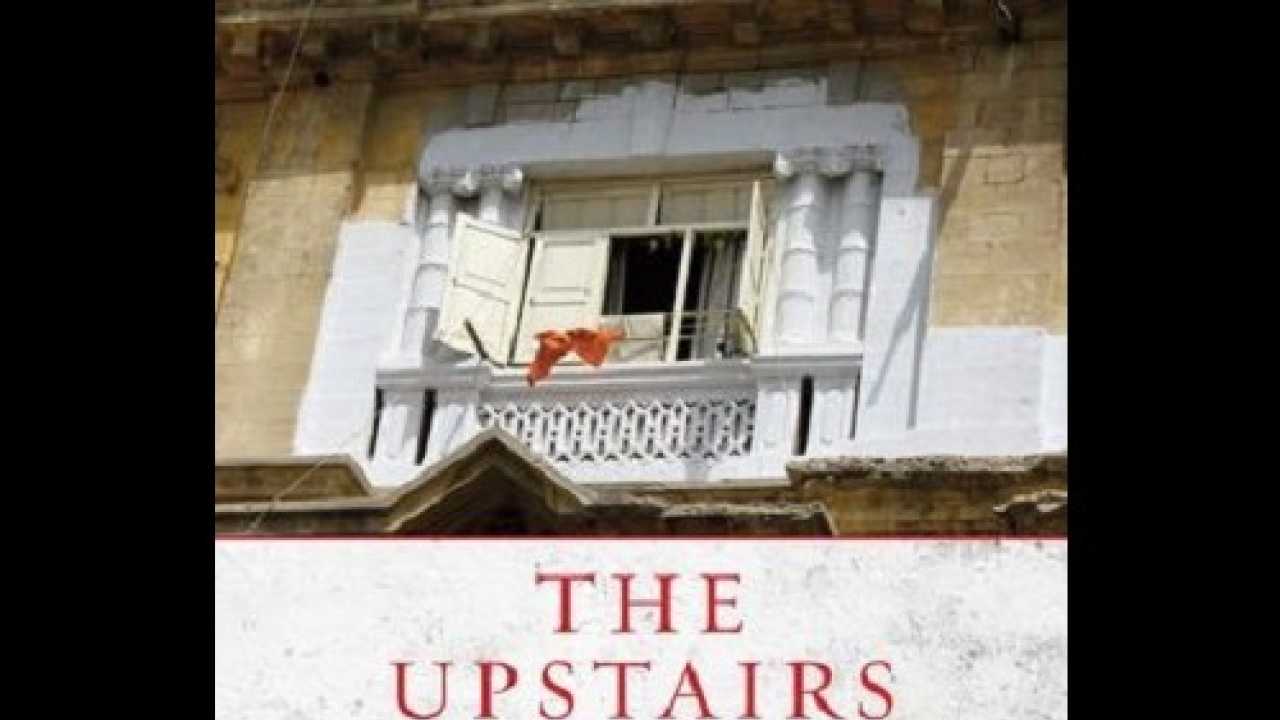
The upstairs room in Rafia Zakaria’s family house was the residence of her aunt Amina. The first wife of Rafia’s uncle Sohail, Amina was heartbroken when her husband remarried. Aunt Amina and the other wife spent alternate weeks with their husband. It is a family situation that affected Rafia Zakaria, now a columnist with DAWN Pakistan, and on the Board of Directors at Amnesty International USA, deeply.
The Upstairs Wife is the story of her aunt’s fate juxtaposed against a turbulent scene in the history of Pakistan post independence. In some cases, the link is direct - Aunt Amina returns to her father’s house in the same year that Benazir Bhutto returns after seven years of self-imposed exile from Pakistan. “In Pakistan and perhaps in South Asia in general, there is a belief that the public and private are separate and untouched by each other. I wanted to juxtapose the violence and ruthlessness of the public sphere with what occurs in intimate relationships,” says Rafia. “I wanted to reveal how the two are connected, the heartlessness of what occurs outside is hence tied to what we do to each other, husbands and wives, fathers and children, brothers and sisters and so on.”
Her book is a journey through Pakistan's story and particularly of Karachi, exploring whether difference and discrimination are endemic to any country or community. “When my family migrated to Karachi, they came bearing the dream that everyone would be the same because everyone was Muslim, The reality of living in Karachi, the diversity of people they found there was starkly different, and suddenly other differences became more and more important. The question then becomes, can you ever be similar enough?” she says.
Rafia considers Pakistan to be one of the most misunderstood countries in the world today. It is what drove her to write the story, the chance to bring out the stories of the ordinary Pakistanis. “The curse of the War on Terror, foreign interventions and local despotism has meant that in the imagination of most of the world Pakistanis are a dehumanised lot. I wanted to take readers into the world of what it feels like to be Pakistani in this moment, to introduce them to the many unanswered questions that confront us,” she says.
Women’s rights
Women, and their sufferings, their everyday trials and their vulnerabilities manifest themselves in the situation of the nation. Rafia’s helpless aunt may have been the only one on the street sharing a husband but she wasn’t the only woman in the country on the receiving end of a law that doesn’t ban polygamy or allow women to initiate divorce, or fighting to make her presence felt. “I wanted to claim the story of Pakistan for Pakistani women, they say that history is written by the victors; Pakistani women are not the victors, but as a writer it is my hope that if the story of their country is told in their words and voices; then they will be,” she says.
Rafia is well versed with these voices of despair and hopelessness. An attorney and human rights activist, she has worked extensively with domestic violence victims across the world. In The Upstairs Wife, she has tried to highlight a few relevant women’s issues - there are stories of women who led protests, women who sabotage their sisters in law, women who run in elections and women who never leave home. The book, she explains, explores how control of women has become central to Pakistani national identity and thus reflected in the constrained conditions they face. Despite this, Pakistani women have persevered and endured. “In the subcontinent, and for brown feminism in general there are dual challenges. On the local side we are continually fighting patriarchal forces; a public sphere in which women are endangered and threatened and professional spaces where they are either sexualized or ignored. On the global end; there are orientalist stereotypes; the idea that eastern women are perpetually submissive and awaiting rescue,” she says, adding that she tries to encompass as wide a frame of experience as possible.
Rafia’s family’s story largely centres on her aunt and the toll that bigamy takes on her life. “We spend a lot of time talking about religious rules, what is permitted and not permitted but in general and especially in terms of women, there is very little conversation about how rules impact real lives. So the book poses a question; something may be permitted and even acceptable, but should it be so when it can wreak such damage on lives. The emotional costs of religious rules must in this sense also be assessed.”
In another sense, Rafia maintains that her bigamy theme explores the divisions between Pakistan and India, a metaphor of what happens when hate becomes a habit. What binds the two countries, in a way, is the way their women are perceived, from within and from outside. “I think Pakistani women, perhaps like Indian women, are currently bearing the burden of a shift to the right and toward both extremism and blinding nationalism,” she says.
Rafia’s may have inherited that window of her beloved aunt but has ensured her life is as different as possible. She mentions rebelling from an arranged marriage of her own. “I think the marriages and relationships we see growing up form the idea of love in our lives. They create our expectations of what we must expect and what we must give. Seeing what my aunt went through when her husband took a second wife, being witness to her sense of marginalisation and exclusion created a heightened sense of injustice for me,” she says.
The Upstairs Wife releases in April 2015.